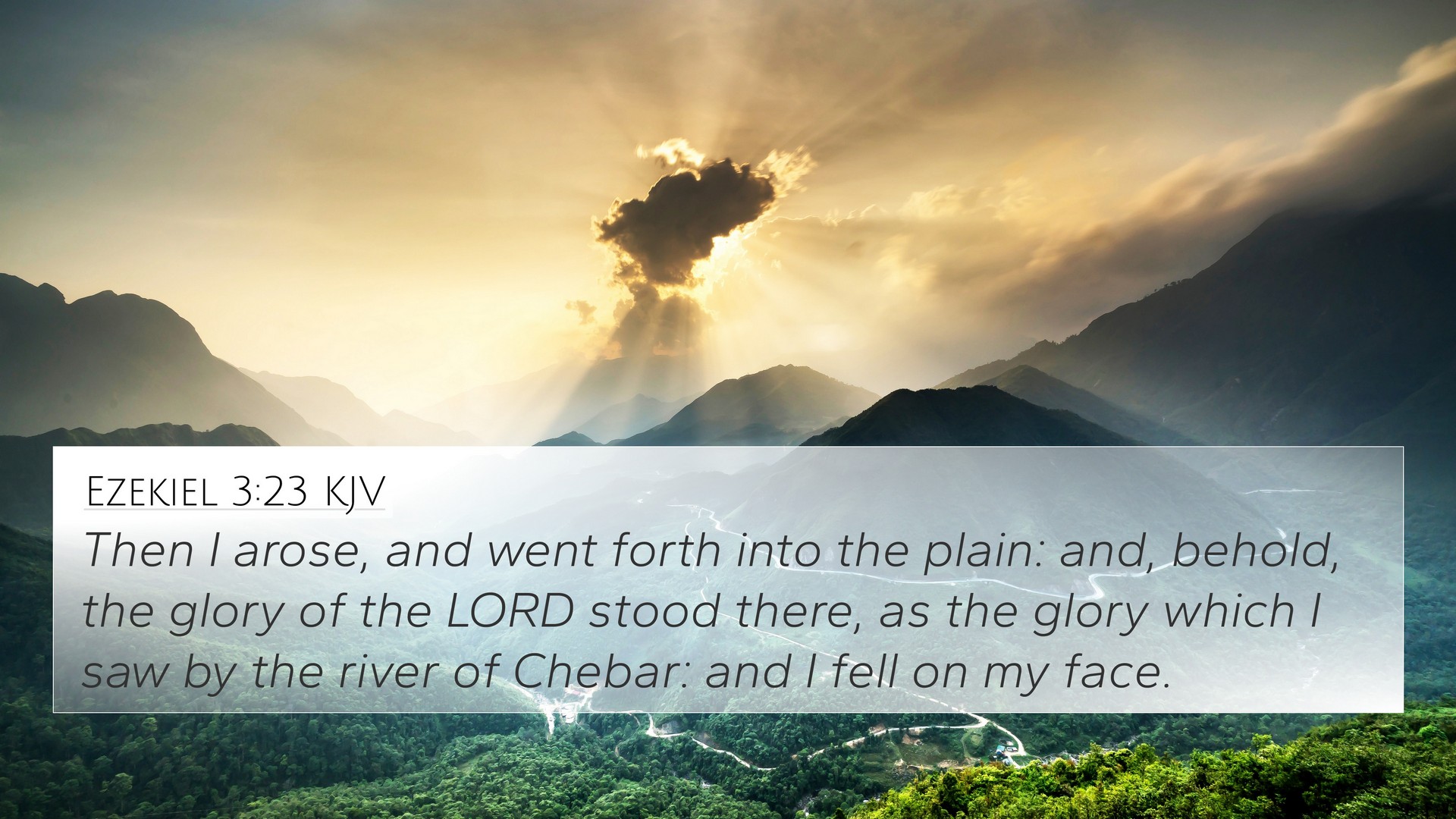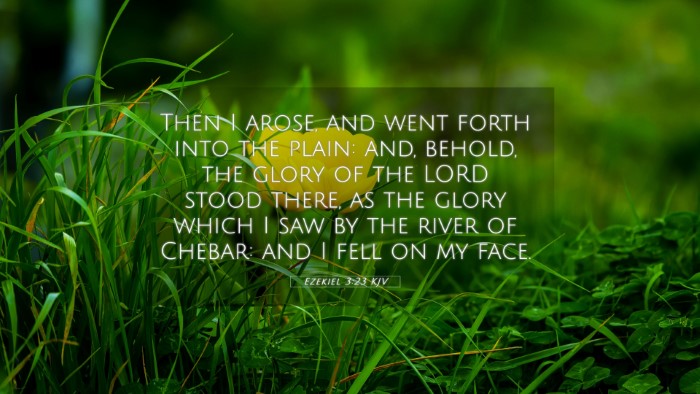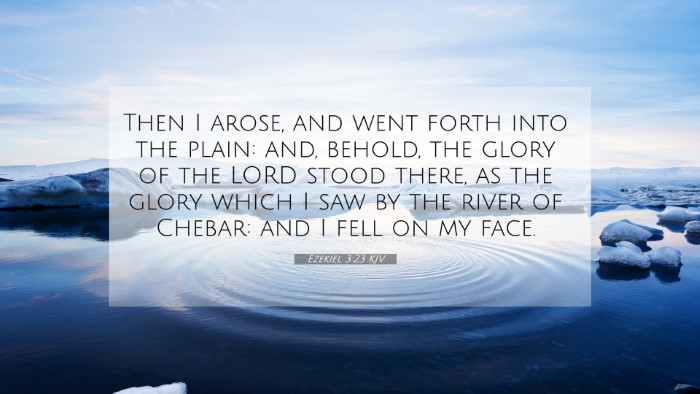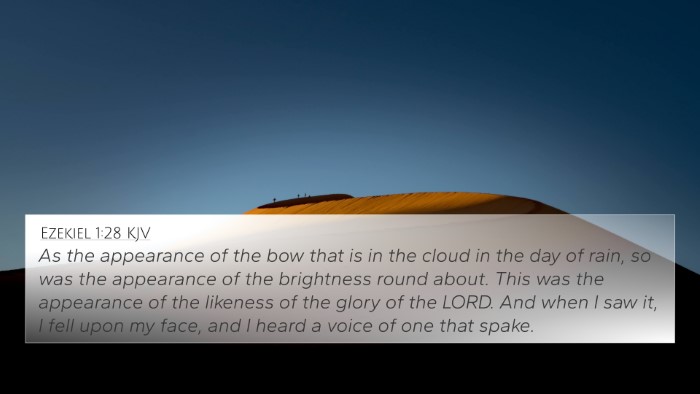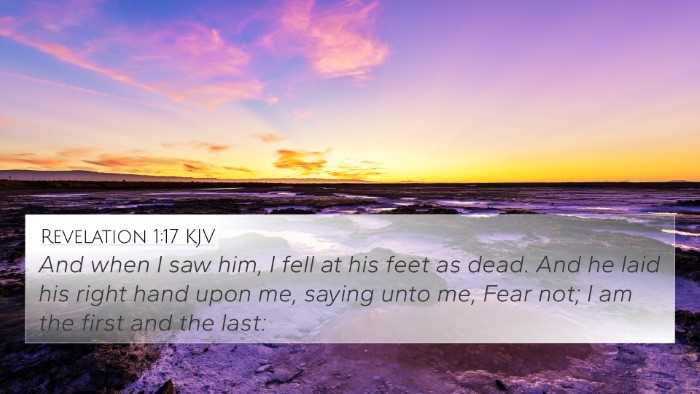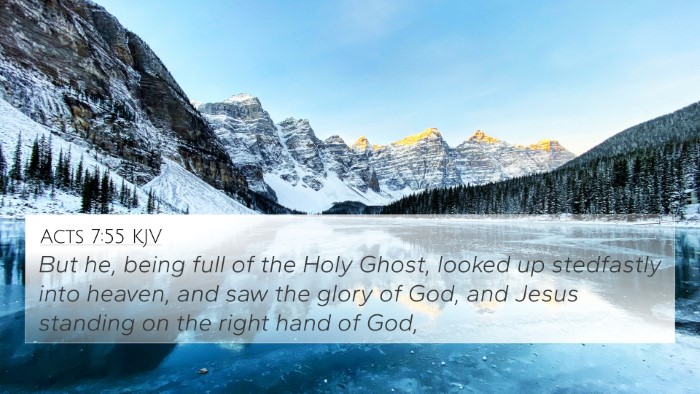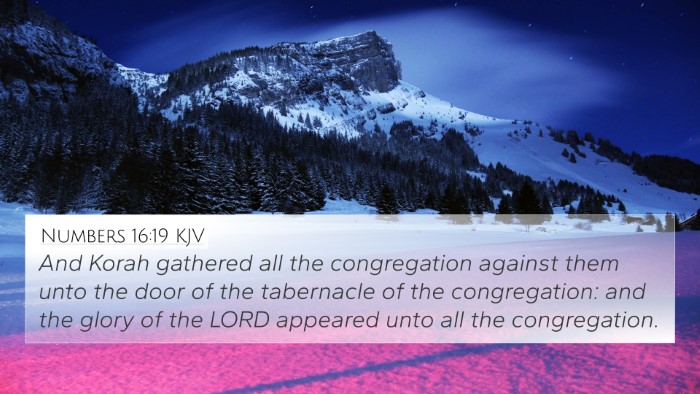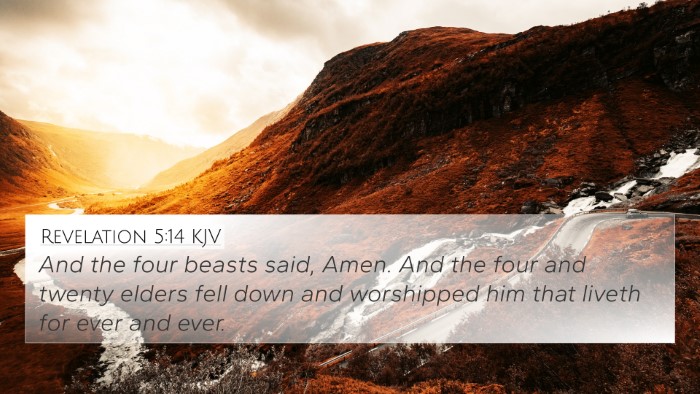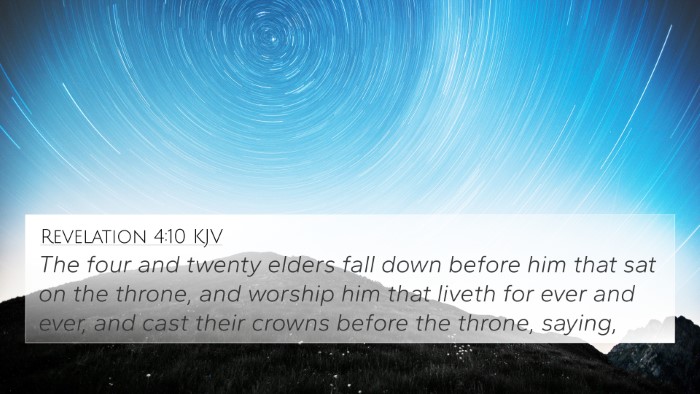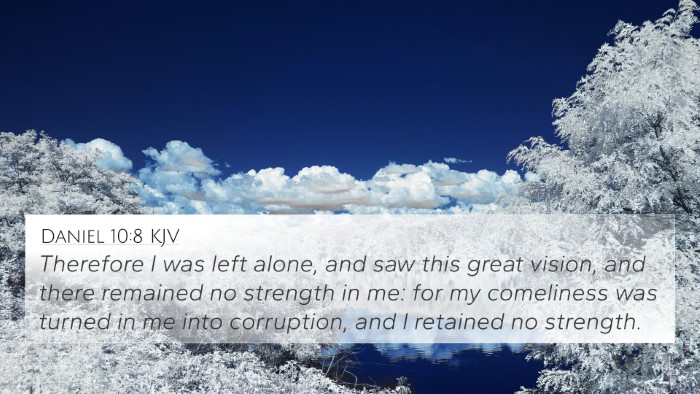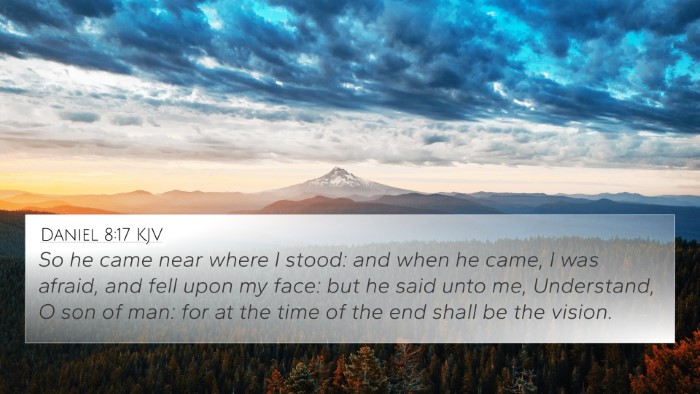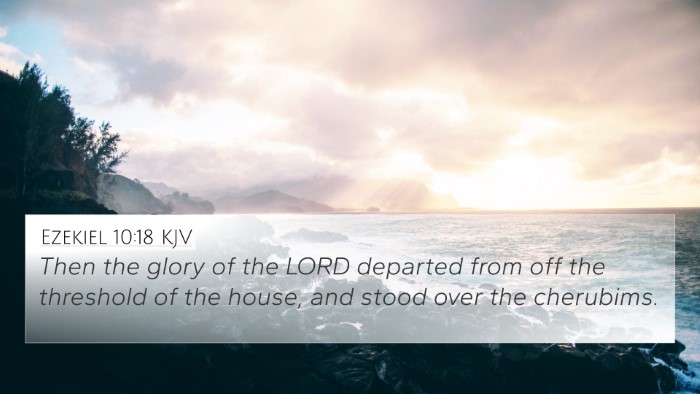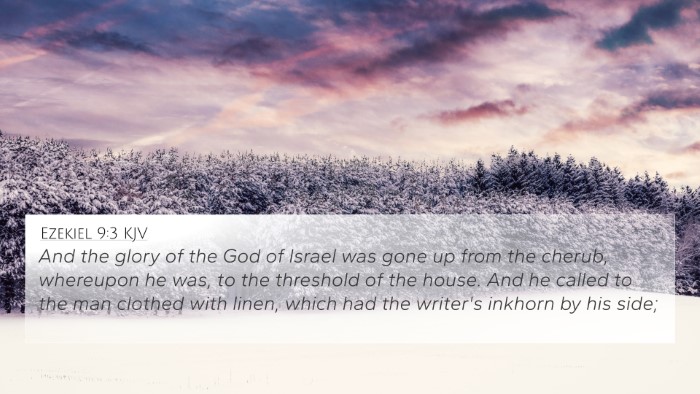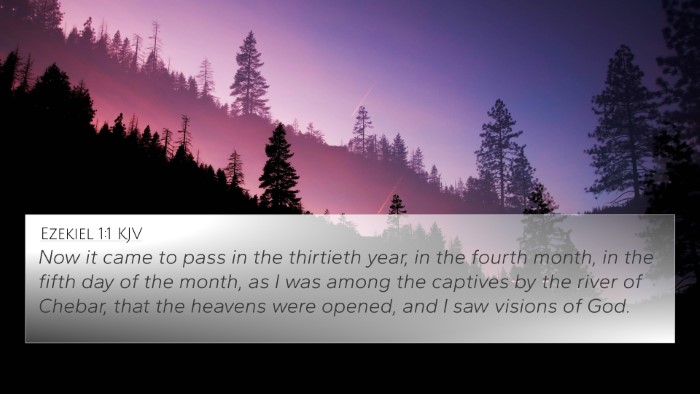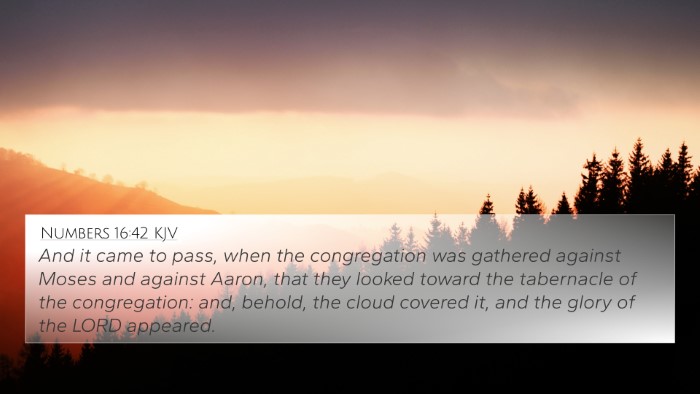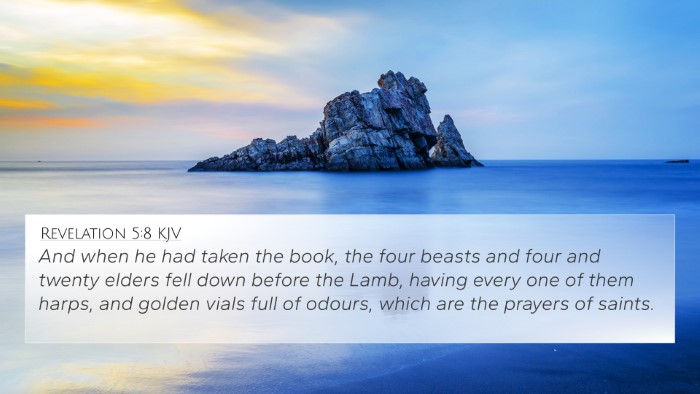Ezekiel 3:23 - Interpretation and Meaning
Ezekiel 3:23 states: "Then I arose and went forth into the plain; and, behold, the glory of the LORD stood there, as the glory which I saw by the river of Chebar: and I fell on my face."
This verse serves as a pivotal moment in Ezekiel's prophetic mission and emphasizes the profound experience of God's presence. The Prophet Ezekiel, having received a heavy burden of prophetic responsibility, now encounters God's glory once more, reinforcing the seriousness of his divine calling. Below, we summarize insights from renowned public domain commentaries on this impactful verse.
Summary of Insights
-
Matthew Henry:
Henry emphasizes the continuity of God's presence in Ezekiel's journey. The prophet's earlier vision of God's glory by the river Chebar is revisited, highlighting both the majesty of God and the seriousness of the message he must deliver. The act of falling on his face demonstrates Ezekiel’s profound reverence and humility before the Almighty.
-
Albert Barnes:
Barnes points out that the term "glory" here refers to God's majestic presence that is both awe-inspiring and terrifying. He notes that Ezekiel’s action of rising and moving reflects a compelled obedience, as the prophet is directed to fulfill his Divine commission amidst the challenges he faces. This verse confirms the ongoing relationship between God and the prophet, reinforcing the vital theme of divine guidance.
-
Adam Clarke:
Clarke elaborates on the significance of the "plain" where Ezekiel encounters God's glory. He interprets the plain as a metaphor for clarity and divine communication. His falling on his face symbolizes deep reverence and submission, where Clarke insists it is crucial for the servant of God to remain humble and aware of God's overwhelming power and presence.
Key Themes
This verse touches on several important themes within Scripture:
- The Glory of God: A central theme that emphasizes God's magnificence and holiness.
- Divine Calling and Obedience: Ezekiel’s responsiveness to God’s command illustrates the necessity of following divine direction, often amidst uncertainty.
- Reverence and Submission: Ezekiel's falling on his face signifies the proper response of believers before God's greatness.
Cross-References
Understanding Ezekiel 3:23 can be enhanced by examining the following cross-references from the Bible, which connect it with broader themes:
- Ezekiel 1:28 - The vision of God's glory by the river Chebar.
- Isaiah 6:5 - Isaiah’s vision of the Lord and his response of humility.
- Revelation 1:17 - John's vision of Christ and falling at His feet in awe.
- Jeremiah 1:6 - Jeremiah's initial responses when called by God.
- Psalm 95:6-7 - An exhortation to worship and reverence before God.
- Matthew 17:6 - The disciples' response to the transfiguration of Jesus.
- Philippians 2:10 - Every knee shall bow at the name of Jesus, emphasizing God's supreme authority.
Conclusion
The experience of Ezekiel as depicted in chapter 3, verse 23, is fundamental for understanding prophetic ministry and the nature of divine communication. The links between Ezekiel's experiences and those of other biblical figures demonstrate the continuity of God's revelation throughout scripture. Through cross-referencing various texts, believers can better grasp the significance of humility, obedience, and the transcendent nature of God’s presence.
This understanding can serve as a guide for those interested in scriptural interpretation and thematic Bible verse connections. For further study, engaging with tools for Bible cross-referencing can enhance your insights into God's Word.
Tools for Further Study
- Utilize a Bible concordance to find related verses.
- Explore a cross-reference Bible study guide for deeper insights.
- Practice identifying connections between the Old and New Testament to broaden understanding.
- Consider cross-referencing Bible study methods to enrich personal or group Bible study.
